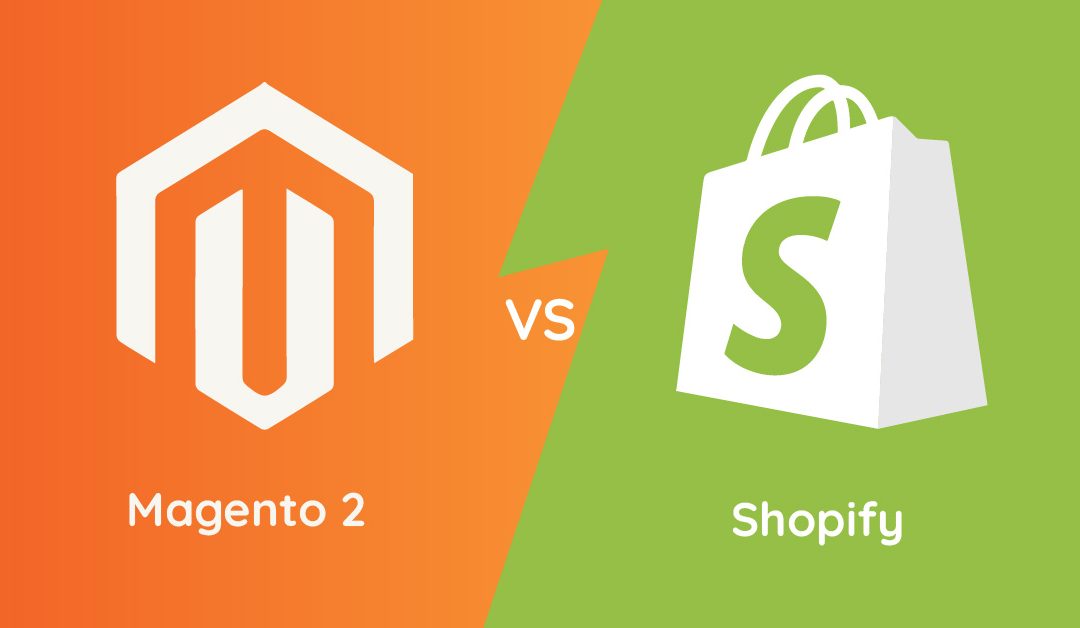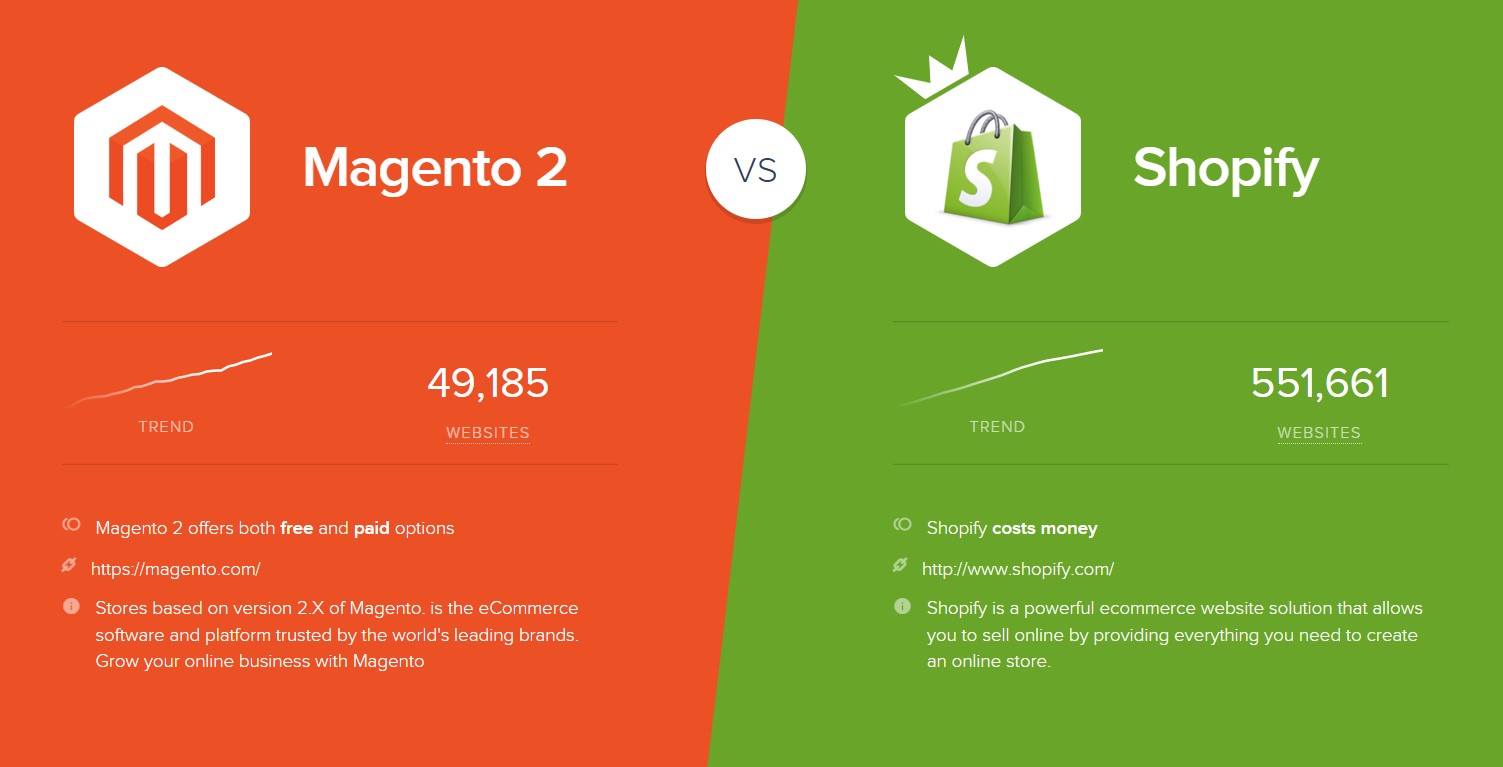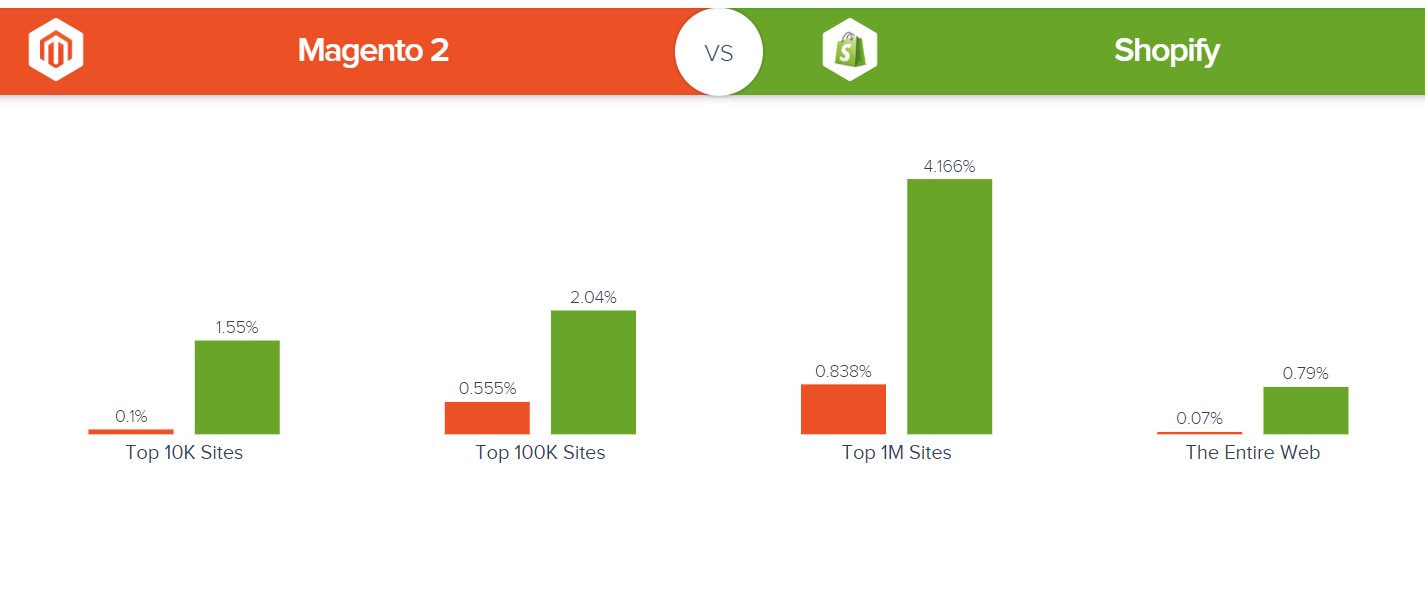Shopify is an e-commerce platform that, with its simple interface and easy-to-use website builder, allows merchants to start an online business. It also contains a number of sales and e-commerce features, as well as compatibility with third-party digital tools.
Magento is a robust solution that goes beyond the fundamentals. Businesses of all sizes may develop multichannel experiences and deploy several language websites to provide a consistent client experience.
Shopify vs Magento
Pricing
Shopify is a software-as-a-service (SAAS). It means that customers must pay a monthly membership fee to utilise the Shopify platform. Shopify has three plans: basic costs $29 per month, Shopify costs $79 per month, and Advanced costs $299 per month. There are possibilities to pay annually and receive a 50% discount.
Magento has a few versions, and one of them is free. The cost of which will depend on the specific needs of your online store, the development company which you will work with and the hosting which you choose. Development costs start at about $ 15.000-18,000.
Shopify vs Magento
Payments integration
Shopify Payments, the company’s own payment processor, charges no transaction fees (except for the regular credit card processing fees). Also, you can choose from over 100 different payment gateways, but all of which, unlike Shopify Payments, charge a transaction fee. Popular payment channels include Amazon Pay, Apple Pay, and Paypal.
Magento allows over 150 payment gateways, however, the bulk of them are intended for large businesses. To connect your shop with popular payment processors such as Stripe, just download them from the marketplace. Plus, Magento offers you to sell directly on Amazon while using your own Magento-based inventory. This is incredibly useful since it allows you to access many more clients.
Shopify vs Magento
Extensions & Integrations
The Shopify App Store has over 4200 free and paid apps to help you add features, manage your store, and increase sales. Also, Shopify allows you to integrate marketing email campaigns, such as the MailChimp account, to reach out to your target audience.
Magento now offers over 3600 extensions through the Magento marketplace and you can hire a programmer to create an individual plug-in for you. In most cases, the installation procedure is simple. The proper setup might be challenging. Magento is very customizable, and integrations with other systems will go smoothly.
Shopify vs Magento
SEO
Shopify is more dependent on applications for SEO. While you may change page titles and picture alt tags, most of your SEO tactics will need additional apps.
In Magento, you can change picture alt tags (which help Google understand how to classify an image on the image search platform) and set up URLs to help users find your web pages more easily. All of these features are built-in. You can also install plug-ins which give you even more options.
Shopify vs Magento
Advantages and disadvantages in brief
Shopify Pros👍
- +70 responsive store themes to choose from
- Intuitive eCommerce builder
- App store for extending the functionality
- Good customer support
- Several checkout and payment methods.
- Large community
Shopify Cons 👎
- Using most themes have an extra cost, Shopify offers only 10 free themes
- Integrating apps into your store isn’t easy
- Every transaction incurs a fee (except Shopify payments)
Magento Pros 👍
- Few plans including Open Source
- Modular, and scalable store platform
- Excellent community of experts
- Big range of store themes to download
- The open-source version is fully customisable
- Mobile-friendly
Magento Cons 👎
- Requires a bit of knowledge – it may be difficult for beginners
- It takes some time to set up a store.
- High cost associated with setting up your store
Some statistics
On the web, the Shopify platform (551 661 websites) is much more popular than Magento 2 (49 185 websites). This is likely because Shopify has an easier entry threshold you don’t need to invest in a launching store.
Due to the huge number of websites, Shopify also wins in the number of stores in the top 10 K, Top 100K and Top 1M.
Source: www.similartech.com
Shopify vs Magento 2
Conclusion
Both platforms enable businesses to create online stores. Because of its simplicity and ease of use, Shopify is the go-to solution for first-time entrepreneurs on a tight budget. Magento is designed for small and medium-sized organisations that appreciate customization and customisation. It’s also appropriate for medium and large organisations with enormous budgets.
Are you struggling to choose the best solution? Feel free to contact us; we provide consultations.
Want to start a project?
B4SPOT team will be excited to take your ideas into action. Please contact us right away to discuss your journey.


